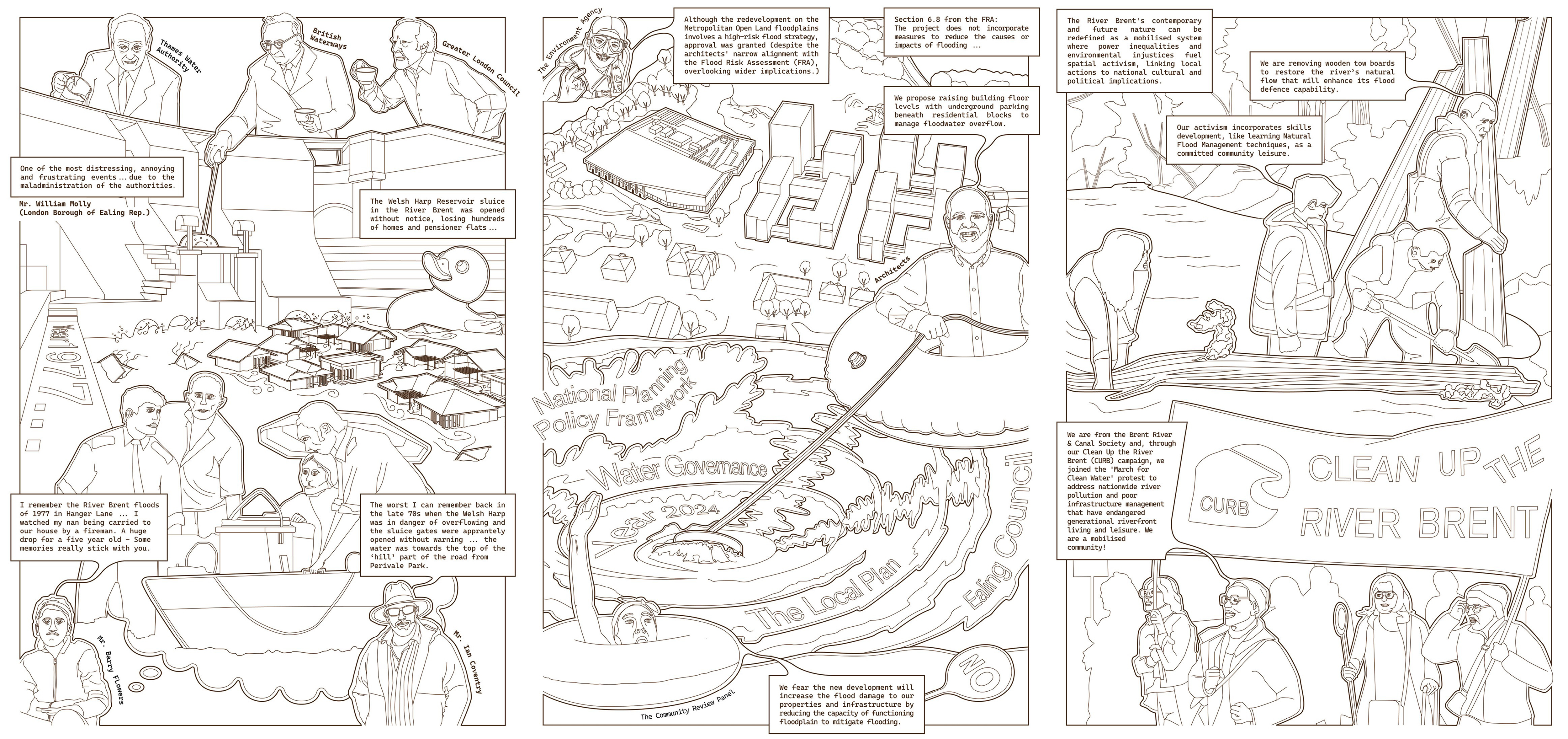|
| Riddle, Rubble, and Ripple: The River Brent’s Floodplains Between Memory, Infrastructure, and Collective Governance |
| This essay examines the River Brent’s Metropolitan Open Land floodplains as dynamic landscapes of resilience. It highlights how community memory, grassroots action, and ecological restoration challenge centralised flood management, aligning with UN Sustainable Development Goals on climate action, sustainable cities, and strong institutions through participatory, locally informed approaches to environmental governance. |
| The essay explores the evolving role of the River Brent’s floodplains, particularly those designated as Metropolitan Open Land (MOL), to highlight how these spaces reflect the complex interaction between ecological processes, human intervention, and collective memory. Once recreational landscapes, the Brent floodplains now serve as contested terrains of flood resilience and environmental justice. Drawing on Tim Ingold’s concept of taskscapes and Richard White’s idea of rivers as organic machines, the essay examines how attempts to control the river through embankments, weirs, and sluice gates have often failed to contain flooding, most notably during the catastrophic 1977 event. These failures exposed systemic weaknesses in centralised flood management and deepened mistrust among local communities. Through a combination of archival research, policy analysis, and stakeholder recollections, the essay configures how the River Brent’s MOL floodplains have become active spaces where lived experience and community memory inform local governance. Grassroots initiatives, led by groups such as the Brent River & Canal Society and the Brent Catchment Partnership, have responded to planning oversights by restoring the river’s natural rhythms and advocating for more sensitive and sustainable approaches to development. These actions reflect the concept of serious leisure, where sustained voluntary engagement builds local expertise and fosters environmental stewardship. By focusing on the Brent’s MOL-designated floodplains, this essay argues that these landscapes are not only protected spaces but also dynamic arenas of resilience. They challenge top-down governance and offer a model for decentralised, adaptive flood management. The Brent case provides insight into how communities can shape sustainable futures through memory and participation. In doing so, these local efforts align with the aims of the UN Sustainable Development Goals, particularly those related to sustainable cities, climate action, and strong institutions, offering valuable lessons for regions facing similar environmental and planning challenges. |





| 1. Living Disconnected: The Brent Floodplains at Metropolitan Open Land 2. Flood-Informed Leisure: Reimagining the Brent Floodplains 3. Flood Memory and Governance Shift: Past, Present, and Collective Futures 4. Reconnecting Flow and Inhabitation: Healing Divides Across the Brent Floodplains (Design Proposal Included) 5. Reciprocal Futures: Collective Leisure and Governance on the Brent Floodplains (Design Proposal Included) |